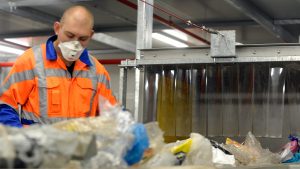Waste Management And Disposal Are Important
When it concerns to trash management, it is critical to understand how to acquire knowledge about the subject. In light of the fact that it has a significant effect on life and also the environment. Waste is a serious concern in today’s world, and it is only becoming worse. The avoidance & reducing waste is a critical component of effective waste management practises.
There are good approaches can be found all throughout the world, and effective pictures can aid in setting up a new elements of reuse or recycling that are emerging. In waste management, the collection, transportation, processing, recycling, and/or disposing of waste materials generated by human activity are all considered to be part of the process.
The Significance Of Waste Management Is As Follows
Trash management is the process of reducing the impact of pollution on the environment, human health, and other factors. It can also assist in the reuse or recycling of resources such as paper, cans, glassware, and other materials. A variety of waste management techniques are used to dispose of a variety of waste types, including solids, liquids, gaseous wastes, and hazardous chemicals.
A wide range of factors must be considered when considering waste management, including disposal options, recycling methods, methods of trash avoidance and reduction, as well as the transportation of waste. Waste management is a procedure that involves the treatment of both liquid and solid waste. The treatment process also includes a range of options for recycling goods that aren’t classified as trash, which are available during the process.
Method For Waste Disposal Include The Following
If non-biodegradable and toxic wastes, such as radioactive leftovers, are not properly disposed of, they have the potential to inflict irreversible damage to the environment & human health. Waste disposal has long been a source of concern, with population increase and industrialization serving as the primary causes of concern. Here are some examples of trash disposal techniques.
Landfills: Disposing of daily trash/garbage in landfills is by far the most widely used technique of waste disposal in the modern era. This method of trash disposal emphasises the need of burying the garbage in the ground rather than in water.
Recycling is a process of transforming waste items into new products in order to reduce the consumption of energy and the consumption of new raw materials in the process. Recycling is intended to reduce energy consumption, reduce the volume of waste disposed of in landfills, reduce air pollution, reduce carbon emissions, and conserve resources for future use, among other things.
Composting: Composting is a simple and organic bio-degradation procedure that involves organic material, such as plant remnants, garden and kitchen garbage, and turns it into nutritionally food for your plants. Composting can be done in your backyard or in your garden.
Incineration: The combustion burning waste materials is referred to as incineration. The waste sample is heated at extremely high temperatures, at which point it is turned into useful materials such as energy, gas, steam, and ash, among others.

